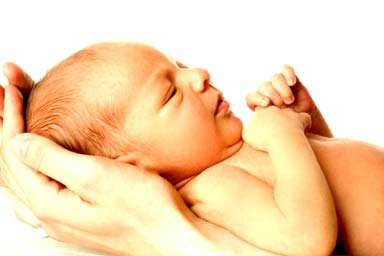Is Economic Liberty Driving The World's Fertility Decline?

There was a moment in my childhood when I was terrified at the idea of overpopulation. I think I had caught a news item in school, or at home, about the earth’s growing population, and I was afraid that one day we’d run out of space. Out of food. Out of everything. There’d just be too many people.
I thought of that youthful fear this week when I learned that the world’s fertility rates are actually declining to a degree that some are now projecting population declines in the future. I’m a little skeptical of these sort of projections. I remember when we were supposed to run out of oil too.
I’ll believe it when I see it.
What is interesting about population trends is that there seems to be a direct link to liberty, and economic prosperity, and fertility rates. More specifically, it seems that the more free we are the more likely women are to be educated and members of the work force. And the more that happens, the fewer babies women have.
From Slate:
In 2009, Reason’s Ronald Bailey wrote a very interesting article about the ties between economic freedom and declining fertility rates, entitled “The Invisible Hand Of Population Control.”
In 2002, Seth Norton, a business economics professor at Wheaton College in Illinois, published a remarkably interesting study on the inverse relationship between prosperity and fertility. Norton compared fertility rates of over 100 countries with their index rankings for economic freedom and another index for the rule of law. “Fertility rate is highest for those countries that have little economic freedom and little respect for the rule of law,” wrote Norton. “The relationship is a powerful one. Fertility rates are more than twice as high in countries with low levels of economic freedom and the rule of law compared to countries with high levels of those measures.”
Norton found that the fertility rate in countries that ranked low on economic freedom averaged 4.27 children per woman while countries with high economic freedom rankings had an average fertility rate of 1.82 children per woman. His results for the rule of law were similar; fertility rates in countries with low respect for the rule of law averaged 4.16 whereas countries with high respect for the rule of law had fertility rates averaging 1.55.
Economic freedom and the rule of law produce prosperity which dramatically lowers child mortality which, in turn, reduces the incentive to bear more children. In addition, along with increased prosperity comes more education for women, opening up more productive opportunities for them in the cash economy. This increases the opportunity costs for staying at home to rear children. Educating children to meet the productive challenges of growing economies also becomes more expensive and time consuming.
That last is interesting. As an economy becomes more free, allowing more women to seek out prosperity in the marketplace, the more cost there is in terms of lost opportunity to staying home and raising children.
What happens is that more women simply choose to earn prosperity for themselves in the marketplace rather than stay home and have children and be dependent, to a larger degree, on others.
Is that good or bad? I don’t think you could really say it’s either. It’s simply choices free people are making, and I have a feeling that it’s something that will largely govern itself. Just as there is, as Adam Smith described it, an “invisible hand” in the world of economics I suspect there is an “invisible hand” in this matter as well. Which is to say that there are social and economic indicators that women will respond to if we need more babies, just as they will respond to the same indicators when we need fewer.







